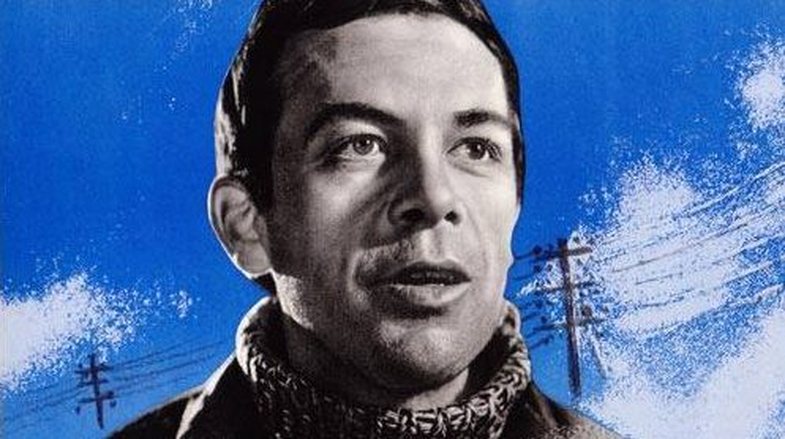
As homage sign for the death of one of the Albanian cinematography icons, Richard Ljarja, is brought below some portion of his rare interviews, a form of it to remind himself of the work he left behind a film master, who was escorted to a modest ceremony with few friends and family, following the protective measures for the non-proliferation of Covid-19.
In an interview years ago, given to journalist Dashnor Kaloçi ( via Memorie.al ), Ljarja describes the start of his career in cinematography.
"I have been involved in art since I was 6 years old, when my two parents, with the idea of giving me a general culture, introduced me to piano music circles. But even though I studied music for many years, even being a bad musician, reaching the Prenk Jakova Symphony Orchestra as a bassoonist, when I graduated from high school in 1960 I had the right to study Mathematics-Physics. Of course I did not accept this, as my dream was to become an actor.
Among other things, he spoke about the first role in cinematography, that of "Commissar of Light".
My first role is the teacher (Dritan Shkaba), in the feature film "Commissar of Light", a film that was very successful, as it was widely echoed by the press and paved the way for me further. I won that role with a rehearsal, among 15 competitors, among whom I remember Guljelm Radoja, Viktor Zhust and Mark Topollaj. In addition to that role, I accidentally helped with the role of the priest, as the great Ndrek Luca was missing. But when Minister Fadil Paçrami saw them, he liked the teacher more, saying: "This is what I did as a commissioner."
Regarding the departure from Kinostudio, Ljarja said that he finally left in the 1990s.
"I left Kinostudio in '96, when I broke off financial relations from there, but de facto it had happened since 1990, when Kinostudio no longer had the financial means to make films. Based on this fact, my departure from the world of film came somewhat mildly, as from there I started my duty as Artistic Director of Albanian TV. ?
Following the interview, the actor said that if he was called for a role, he would think long and hard. "It depends on the role, the director and the theater, because today I no longer have time to run after a handful of money and be ashamed," he said.
In another interview given in 2012 for Skënder Minxhozi, the actor addressed the film crisis.
"Film is now really an industry," he said. Have you heard, for example, the Voice of America news? Once a week there is a section specifically for Hollywood. I have never heard him make artistic assessments, it only talks about the profits that this industry makes. This film received so many millions of dollars this week, the other one made so much profit from the show in movie theaters. So film is the business and privilege of industrialized states. However, there are individuals in the world who, with a very small budget, make great films. I think the latter applies to us. But rumors among the people in the film say that these modest budgets are shared with friends and relatives, regardless of whether they do it or not. That's why movies are who they are, and they will continue to be, unfortunately. "
In the first interview, Ljarja said that when he did not write screenplays, he went to Shkodra, to his home.
?I go to Shkodra, to my house, and I plant onions, garlic, tulips, roses, etc. I work in my garden for four or five hours, as I miss walking barefoot on the ground. ?
Of course, he stopped for a moment at one of his most famous roles, Deda in "White Roads".
"People ask me today, are you still on the pillar?"





